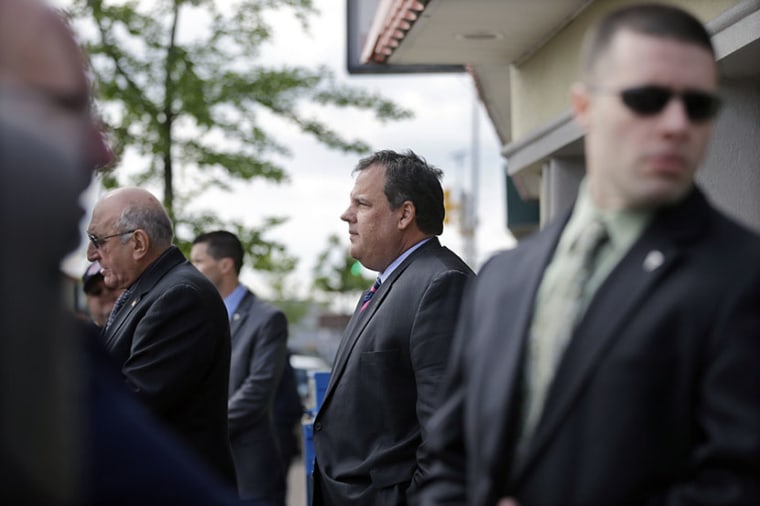KNOW WHEN TO FOLD: Chris Christie was always a daring leader--even his old high school buddies knew that. A new Washington Post article is diving into Christie's past and revealing what his friends had to say about their "eternal class president," and the answers would surprise you if all you knew of Christie today was the hard-edged governor you see on TV. "[Christie is] Not quite as combative as he is now. Not quite as aggressive," one friend said. Others described him as driven, but said he was careful to pick his battles, and knew when to surrender without a fight.
CLEARING THE FIELD: Chris Christie's pain could be Scott Walker's gain--at least, that's what Politico is reporting this morning. According to their latest report, Republican strategists are saying the Wisconsin governor could get a boost of support ahead of 2016 as Christie's star fades. Walker, who's held his leadership role in a blue state since 2010, has many strategists keeping an eye on his chances at winning over far-right conservatives, as well as those on the more moderate side of the party. "Chris Christie took a big fall after Bridgegate. It would make sense that Scott Walker's stock would rise," GOP stragetist Ron Bonjean told Politico. "I think he has as excellent a chance as anyone else in the GOP primary at this point."
HEALTH CARE BATTLE: The Congressional Budget Office released new numbers this week about the effects of the Affordable Care Act on the U.S. economy--and it has both sides of the aisle wading into a fight. "The reduction in CBO's projections of hours worked represents a decline in the number of full-time-equivalent workers of about 2.0 million in 2017, rising to about 2.5 million in 2024." That line from the report led some Republicans to publicly criticize the health care law for damaging the economy, while Democrats were quick to defend what the statistic actually meant: "With the expansion of insurance coverage, the budget office predicted, more people will choose not to work, and others will choose to work fewer hours than they might have otherwise to obtain employer-provided insurance," the New York Times explained.
But at least one Republican leader is stepping up to set the record straight: House Budget Chair Paul Ryan, who clarified at a hearing Wednesday morning with CBO director Steven Elmendorf: "Just to understand, it is not that employers are laying people off."
"That is right," Elmendorf replied.
IN OTHER NEWS...
- NUMBER OF THE DAY: $2 billion--that's how much CVS is estimated to bring in in annual revenue when they stop selling tobacco products on Oct. 1 this year.
- QUOTE OF THE DAY: "I'm off the grid. I move about with my TV show so that the drones can't find me and you won't know exactly where I am." -former wrestler and Minn. Gov. Jesse Ventura, who's currently in an "undisclosed location in Mexico"
- CONGRESSIONAL CAMPAIGN ANNOUNCEMENT OF THE DAY: Former American Idol runner-up Clay Aiken has put the rumors to rest and made it official: he's running for Congress in North Carolina.
- TWEET OF THE DAY: Secretary of State John Kerry is back on Twitter, engaging in conversations and tweeting out photos and hashtags. Welcome back, Secretary!
